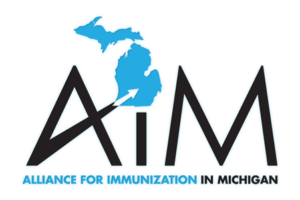Spesso i genitori hanno difficoltà a stabilire quando i sintomi del loro bambino debbano essere considerati un'emergenza. Alcuni genitori potrebbero temere di chiamare troppo presto, mentre altri potrebbero liquidare i sintomi di emergenza come "non gravi". Di seguito sono riportate le condizioni che riteniamo richiedano un trattamento immediato. Dovresti chiamare immediatamente se tuo figlio manifesta uno qualsiasi di questi sintomi:
Le informazioni contenute in questo sito web hanno lo scopo di informare e istruire e non sostituiscono la valutazione medica, il consiglio, la diagnosi o il trattamento da parte di un professionista sanitario.
Dolorabilità addominale
Your child’s tummy should be soft even when she has a stomach ache. Try pressing on your child’s tummy while she is distracted (such as when sitting on your lap while reading a story). You should be able to press in about an inch in all parts of the tummy without resistance or screaming. The tummy should not be bloated or hard.
Labbra bluastre
The blue color of the lips and mouth (cyanosis) can indicate your child is not getting enough oxygen.
Breathing Difficulty
This is not the same as the noisy breathing caused by a stuffy nose. Watch and listen to your child breathe after you have cleaned out her nose and when she is not coughing. Call if your child has any of the following:
- Obvious breathing difficult
- Rapid breathing (more than 50 breaths per minute in a child under six months, more than 40 breaths per minute from 6 months to 4 years, or more than 30 breaths per minute if older than four years)
- Labbra bluastre
- Moaning or grunting with each breath
- Pulling or sucking in between the ribs or at the bottom of the neck (retractions)
Punto debole sporgente
If your infant’s soft spot (fontanel) is tense and bulging out, it may mean the brain is under pressure. Since the fontanel normally bulges when the baby is crying, check it when your baby is quiet and in an upright position. It is normal to see the soft spot pulsate at times.
Dehydration
La disidratazione significa che i liquidi corporei del bambino sono bassi e di solito segue vomito o diarrea. I segni di disidratazione includono:
- Nessuna urina o pannolino bagnato per otto ore
- Sticky, dry tongue
- Affondato in un punto debole
- Sunken eyes
- Nessuna lacrima quando piangono (i neonati di età inferiore ai due mesi normalmente non piangono)
sbavando
L'improvvisa tendenza a sbavare in un bambino che non ha ancora messo i denti, soprattutto se accompagnata da difficoltà a deglutire, può indicare una grave infezione delle tonsille, della gola o della trachea.
Infant Fever
Chiamate immediatamente il medico se il vostro neonato ha meno di tre mesi e ha una temperatura rettale pari o superiore a 38 °C. La febbre è più preoccupante nei neonati perché a questa età è più difficile da valutare. Potrebbero non sorridere o fare le fusa, e spesso non hanno abitudini di sonno e alimentazione regolari, quindi può essere difficile stabilire se stanno male. Nei neonati, anche una temperatura rettale inferiore a 37 °C può essere grave.
Lethargy (extreme)
Tiredness and increased sleeping during an illness is normal. However, if your child stares into space, won’t smile, can’t play, is too weak to cry, is floppy, or hard to awaken you should call us. Lethargy does not mean the punkiness that some children experience when not feeling well.
Neck Injury
Any significant neck injury should be reported, even if your child seems fine.
Neck Stiffness
Il torcicollo può essere segno di meningite, soprattutto se associato a febbre. Chiedete a vostro figlio di toccarsi il petto con il mento e, se non ci riesce, informateci immediatamente.
Newborn Illness
If your baby is less than six weeks old, you should call anytime they seem sick.
Dolore (grave)
Chiama il tuo bambino se piange quando lo tocchi o lo muovi. Un bambino con forti dolori potrebbe non voler essere preso in braccio. Anche urla continue potrebbero indicare un dolore intenso.
Poisoning
Se il tuo bambino ingerisce (mangia) qualcosa che ritieni possa essere velenoso, chiama il centro antiveleni al numero 1-800-222-1222.
Purple Spots
Le macchie viola sulla pelle possono essere il segno di una grave infezione del flusso sanguigno, fatta eccezione per i lividi spiegabili.
Testicular Pain
The sudden onset of severe pain in the groin or testicle can be from twisting (torsion) of the testicle. This requires surgery within eight hours to save the testicle.
Walking Difficulty
If your child has learned to walk and then stops walking, it may indicate a serious injury or problem with balance. A child who walks bent over, holding his belly, may have a serious abdominal problem, such as appendicitis.





















